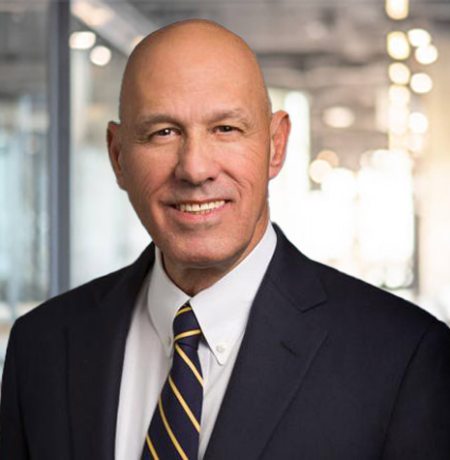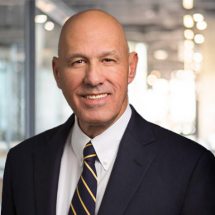The well-worn phrase “culture eats strategy for breakfast” has new relevance in American business these days.
Take the case of State Farm insurance. For almost ten years, Green Bay quarterback Aaron Rodgers has been a spokesperson for the company. Rodgers’ 13 years as starting quarterback with the Green Bay Packers and man-of-the-people persona seemed an excellent fit for State Farm, whose friendly “like a good neighbor” slogan has defined the 94-year-old Bloomington, Illinois-based company since 1971.
And all was well. That is, all was well until November 3, 2021, when the Green Bay Packers announced that Rodgers had tested positive for COVID-19. Several days later, Rodgers revealed that he was not vaccinated, contrary to his previous statement that “I’ve been immunized.” Rodgers said that he “found a long term immunization protocol to protect myself, and I’m very proud of the research that went into that.” That protocol included ivermectin, a drug whose only FDA-approved use in tablet form for humans is to treat conditions caused by parasitic worms. The FDA cautions that “you should not use ivermectin to treat or prevent COVID-19.”
Rodgers presented himself as a victim of contemporary culture, saying, “I realize I’m in the crosshairs of the woke mob right now.” Rodgers continued, “I’m somebody who’s a critical thinker. I march to the beat of my own drum. I believe strongly in bodily autonomy.”
The response was swift and decisive, including belittling headlines (like the Washington Post opinion piece “When did Dr. Aaron Rodgers, QB, acquire a PhD in epidemiology?”), rebuttal from the NFL of Rodgers’ statements about the league’s COVID-19 protocols, and seemingly endless mocking on Twitter.
But Rodgers also received support. Former NHL player (and singer Carrie Underwood’s husband) Mike Fisher posted to his 578,000 followers on Instagram, “I stand with Aaron Rodgers….I believe in the freedom to choose what we put in our bodies and the freedom of conscience.” Sports talk radio has been divided between those who agree and disagree with Rodgers’ stance on vaccination.
Indeed, the public remains sharply divided on COVID vaccination, and that divide is especially sharp between political parties. The Kaiser Family Foundation COVID-19 Vaccine Monitor Dashboard shows that 31% of Republicans say they will “definitely not” get vaccinated, compared with only 2% of Democrats. And the election results of November 2nd show that the nation continues to be politically polarized.
Equally striking is the gap in how geography affects vaccination beliefs and behavior. Among rural individuals, 33% say they will “definitely not” get vaccinated, compared to only 13% among urban populations and 14% among suburban.
Against that backdrop, let’s return to our point of departure: State Farm.
Imagine that you are the CEO of State Farm. Your longtime celebrity spokesperson, featured on many television commercials, has made highly controversial statements. What would you do?
In the past, your path forward as CEO might have been relatively clear. If the celebrity’s statements were provably false and getting significant bad publicity, get a new celebrity spokesperson.
Today, however, the cultural circumstances in the nation are very different than they have ever been before. Beliefs have replaced facts as a basis for opinion. With a public whose opinions are supercharged, and starkly divided by political affiliation and geography, dropping your celebrity spokesperson will delight a significant portion of your customers and infuriate a significant portion of your customers.
What would you do? How do you weigh the potential implications for the company’s policyholders, potential customers, employees, financial position, competitive position, mission, and values? Which direction would do the least damage to the company? Which could do the most good for the company?
As I pointed out in my last blog, reading America’s culture correctly has become a prerequisite to successful Board and management decision making. For healthcare organizations with a charitable mission, that decision-making process is especially subtle. Not only do healthcare executives need to weigh the effects of culture on their organizations’ financial and competitive positions, but also their mission and values as stewards of community health.
Have you come up with your decision? If you have, I’ll now tell you what State Farm did.
It punted. The company issued a carefully worded statement that said, in part:
“Aaron Rodgers has been a great ambassador for our company for much of the past decade. We don’t support some of the statements that he has made, but we respect his right to have his own personal point of view. We recognize our customers, employees, agents and brand ambassadors come from all walks of life, with differing viewpoints on many issues. Our mission at State Farm is to support safer, stronger communities. To that end, we encourage vaccinations, but respect everyone’s right to make a choice based on their personal circumstances.”
State Farm continued to air commercials with Rodgers, but far fewer than before the controversy.
Aaron Rodgers also is a spokesperson for Prevea Health, a multispecialty group in 80+ locations across Northern, Eastern, and Western Wisconsin. Or, rather, he was a spokesperson. Prevea Health’s statement on the Rodgers situation contrasts sharply with State Farm’s:
“Prevea Health and Aaron Rodgers have made the decision to end their partnership effective Nov. 6, 2021….Prevea Health remains deeply committed to protecting its patients, staff, providers and communities amidst the COVID-19 pandemic. This includes encouraging and helping all eligible populations to become vaccinated against COVID-19 to prevent the virus from further significantly impacting lives and livelihoods. There will be no additional information or interviews available from Prevea Health regarding this subject.”
The question “what would you do?” is far from theoretical. Given the divisive, changing, and intense culture of our nation, and its proven effects on markets, any executive, at any time, could be in a similar situation.










